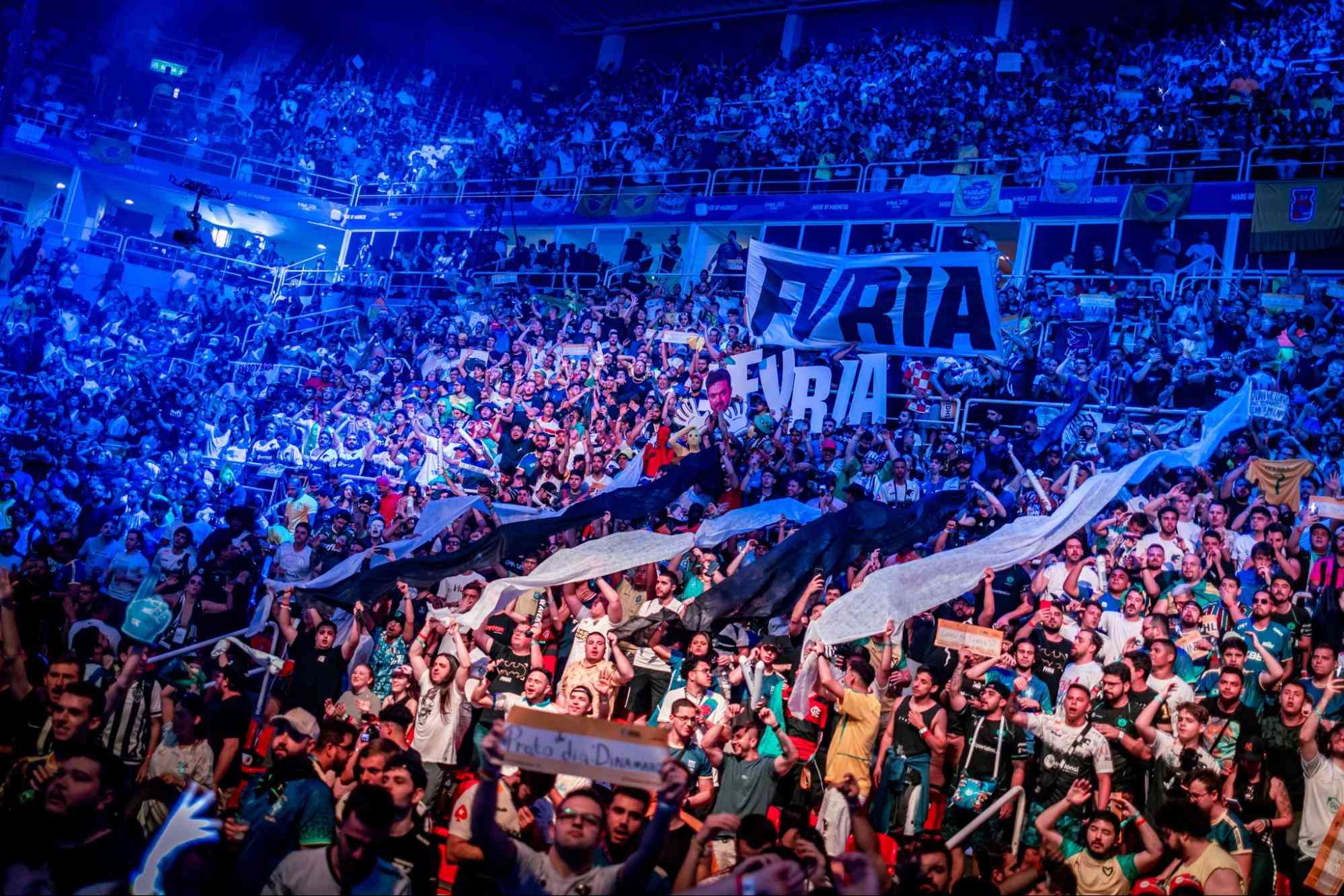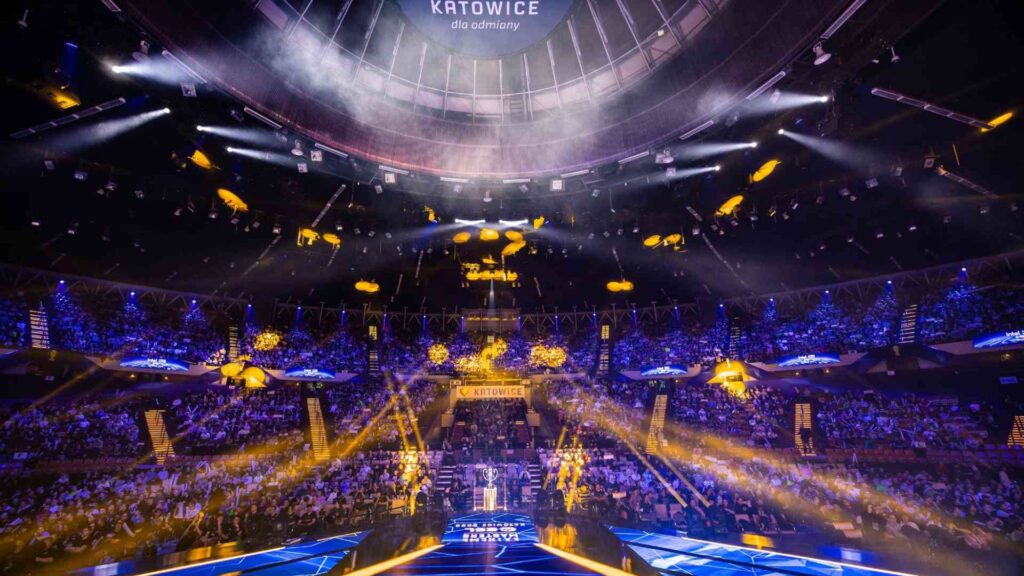Counter-Strike: Global Offensive (CS:GO) is one of the most popular first-person shooter games following its release in 2012. It has become a staple in the world of esports, with many tournaments and events taking place all around the world. If you’re looking to compete in a CS:GO tournament or are a new viewer, it’s important to know the rules and regulations that govern the game. With CS 2 reportedly around the corner, we’ll discuss the key rules of CS:GO tournaments.
Contents
Game Format
The standard game format for CS:GO tournaments feature 30 rounds of play in regulation. Teams play 15 rounds on the Terrorist (T) and Counter-Terrorist (CT) sides, switching off at halftime. Usually, the games are played either in a best of one (Bo1) or a best of three (Bo3) format. This means that games are either decided by a single map or by three maps. However, on special occasions such as the grand finals of big events, best of five matches (Bo5) will be played.
Overtime
In the event of a tie (15-15), the game goes into overtime. Overtime is a best-of-six format, where each team gets three rounds on the Counter-Terrorist and Terrorist sides. The first team to win four rounds wins the game. If the overtime ends in a tie, with both teams winning three rounds each, then the game goes into another overtime, with the process repeating until a team wins four rounds in a single overtime. The overtimes have a different money system than regulation play. The players on each team usually start with either $10k, $12.5k, or $16k as opposed to regulation where teams would start with a pistol round. $12.5k is the most common of these. It depends, however, from tournament organizer to tournament organizer. For example, BLAST is using the 12.5K system for their overtime at the Paris Major, whereas ESL used the 10K system for their Major in Rio 2022. Outside of teams starting with more money than they would in regulation time, all other aspects of the economy remain the same.
Map Pool
The map pool for CS:GO tournaments at the moment consists of seven maps: Ancient, Mirage, Inferno, Anubis, Nuke, Overpass and Vertigo. Each team gets to ban and pick maps during the veto process, with either one, three, or five maps being played depending on the format.
General Restrictions
As there are quite a few tournament organizers (TOs) in the CS:GO scene, there are some rules that are special for each TO. In this article, we will focus on the general rules that are related to the Major. The majority of these rules are followed by every tournament organizer within the scene, however some TOs have their own specific rules relating to player eligibility and substitutions. Here are a few of those rules.
Substitution Restriction
According to Valve’s rulebook for the Majors, each team can substitute a player with their registered substitute once during the event. They are allowed to make a substitution in-between matches for any reason and make a substitution during a match or in-between maps only in the case of a medical emergency.
Once a substitution has been made, the team can continue to play with the substitute player until they choose to revert to their core lineup. The substitution rules above apply if a team chooses to revert to its core lineup. Once the team reverts to the core lineup, it may not substitute again for any reason and must play shorthanded or forfeit if the situation arises.
Equipment Restrictions
In CS:GO tournaments, there are equipment restrictions that players must adhere to. Each player is allowed to have their own equipment with them, such as a mousepad, mouse, keyboard, and in-ears. The players are not allowed any electronics other than what has been stated prior. The day before they play they go to the tournament area to make sure that they have all of their settings on their hard drives that are being provided by the tournament organizer. These settings must be sent in prior to the tournament, so admins can install those onto the player’s respective hard drives. In addition, players are not allowed to use any cheats, hacks, or mods that give them an unfair advantage over their opponents. That includes pixel walking, which led to the infamous “olofboost scandal” in the Quarterfinal of the DreamHack Winter Major in 2014.
Team Staff Restrictions
Aside from the TO staff, only the five players and the team’s pre-registered coach are permitted in the competition area during event matches. Coaches are not to communicate with (i.e., be seen, heard, or felt by) the players by any means at any time with the exception of warmup, half-time, and tactical timeouts in Valve-sponsored events. Coaches that wish to call a timeout are to do so by notifying an admin. In the case of any matches where event admins are not physically present (e.g. online matches), no team staff, including the coach, may be physically or virtually present or communicate with the players at any time during the match in Valve-sponsored events.
Timeouts
Each team is allowed to call four timeouts during a game. Each timeout lasts for 30 seconds and can be used to discuss strategies, make adjustments, or take a break.
 Picture of fans at a CS:GO event. Credit: ESL/@Vexanie
Picture of fans at a CS:GO event. Credit: ESL/@VexanieSpectator Rules
Spectators are not allowed to communicate with players during a game. This includes giving advice or information about the opposing team’s position or strategy. In addition, spectators are not allowed to interfere with the game in any way.
Match Fixing
Match fixing is strictly prohibited in CS:GO tournaments. This includes any attempts to intentionally lose a match or manipulate the outcome of a game in any way. Players found guilty of match-fixing can face severe penalties, including suspension or expulsion from the tournaments; or even permanent bans.
The most known example when it comes to match fixing within the CS:GO scene is the iBUYPOWER scandal. Following evidence of iBUYPOWER cheating in a match on CEVO, the entire lineup and related parties were permanently banned from playing in Valve-sponsored events and were also banned by a number of other TOs for an extended period.
In conclusion, CS:GO tournaments have specific rules and regulations that govern the game. It’s important for players to be familiar with these rules in order to compete at a high level. By understanding the game format, map pool, equipment restrictions, timeouts, overtime, spectator rules, and match-fixing policies, players can compete in CS:GO tournaments with confidence and fairness,


